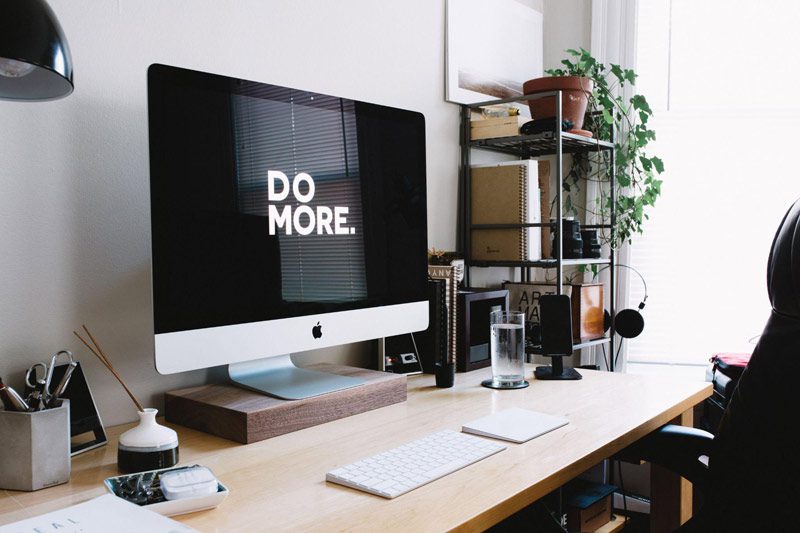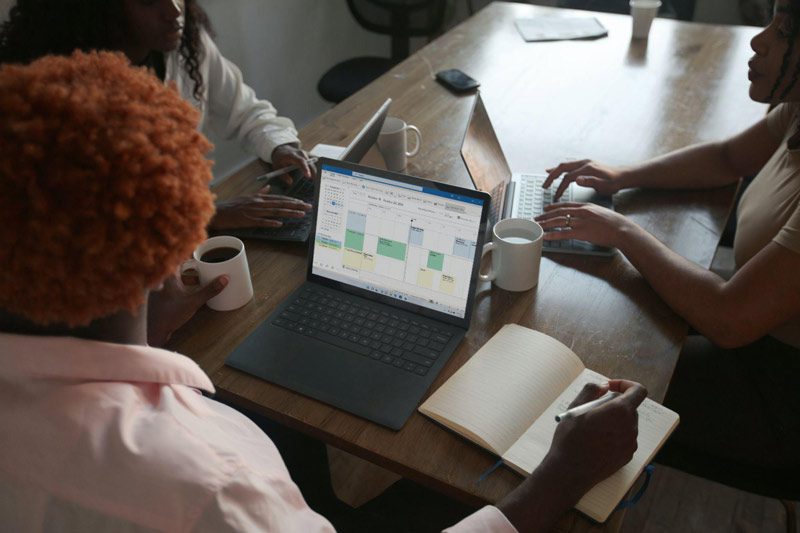Improve Your Work Productivity the Smart Way
Here’s the truth: distractions are a part of life. Here’s the caveat: mismanaged distractions hurt your productivity at work. It takes an average of 23 minutes and 15 seconds to get back to work after you’re distracted.

The good news is that you can build your focus muscles, which, in turn, will improve your attention span and confidence and help you achieve your goals fast. Here are some tips you can use to stay focused and improve your productivity.
1. Plan Ahead
Have you heard of a productivity diary? This is a planner you use to journal with the primary goal of improving your productivity. You write your goals, to-do lists, and every other achievement you wish to make in the diary.
But the diary is not limited to your work plans; you can use it to vent or as a reference for your achievements.
Why is a productivity diary important for improving your quality of work? It allows you to plan ahead.
As a result, you arrive at work with a set idea of what you want to achieve for the day. Now you no longer have to spend minutes or even hours trying to determine where to start or what to do; it is already in your plan.
And as you start working on the go, you inadvertently get rid of any distractions or confusion.
2. Cultivate Silence

And just like that, your productivity is lost. What can you do? The most basic productivity tips will tell you to cultivate silence to boost your focus, whether your workspace is noisy or not.
In the case of the café, you can choose to relocate to a different spot or your work office, or use headphones to cancel out the noise. If you are in the office already, shut the door, put your phone on silent, and disable your notifications.
The more silence you can cultivate, the harder it will be to get distracted and lose productivity.
3. Adopt the Pomodoro Technique
The Pomodoro Technique is one of the most successful methods for boosting productivity. Whether we want to admit it or not, working continuously for long hours is not easy.
This is where the Pomodoro technique comes in: it is a system that encourages you to work in bursts of 20, 25, and 30 minutes after which you can reward yourself with a 5-minute break.
But don’t limit yourself. If you want to take a break after bursts of one hour, please do so. After all, the goal here is to do what works best for your productivity. And taking short breaks in between work allows you to maintain your productivity.
4. Schedule Time for Distractions
Among the many productivity hacks we’ve shared, this one seems to be the most counterintuitive. But think about it for a minute. We’ve already determined that whether you plan for it or not, the chances of going a day without any distraction are doubtful.
We concede you may like taking chances but don’t gamble with your productivity. Schedule time for those unexpected distractions instead. Then, when the distractions come, they won’t interfere with your daily working goals. In return, you will maintain your productivity.
5. Cultivate Personal Discipline and Focus
None of these tips is worth your time and effort if you do not cultivate some discipline and focus. Think of the process of building and maintaining your productivity like maintaining a diet. It requires dedication and determination.
Here’s a productivity example: it’s 10 am, you’ve been working on an urgent report for the last 2 hours non-stop. Then you get a call from your best friend. Last you heard from her, she was about to start a silent Vipassana meditation. You are excited to know how it went, so you pick the call.
The call ends at 10:30 am, but by 10:45, you’re still reeling from the 10 am excitement. The report is due at 11 am. You panic. Suppose instead you went straight back to work after the call. In that case, you’d probably be closer to finishing the report by 11 am.
This shows you the value of discipline and focus for productivity. These mental habits allow you to get back to work quickly following distractions.
Bonus Tips
Additional practices to help you improve your focus and reduce productivity guilt include exercising, getting enough sleep, listening to music, and taking minimal coffee.
Also, you can use the 20-20-20 rule in place of The Pomodoro Technique: work for 20 minutes, take a 20-second break, and work for another 20 minutes until your task is complete.
- PS: Multitasking degrades your focus and attention span. So stop multitasking.
Conclusion
Productivity sounds simple, but it could be the hardest thing you have to do in the face of distractions. Nonetheless, these tips will help you take your productivity game to the next level.
Let us know your tips of methods you use to enhance your productivity in the comments.
About the Author: Scott Carrion is a freelance writer and analyst focusing on business and marketing. His Master’s degree in Business research from Curtis L. Carlson School of Management has given him a broad base from which to approach many topics. He works closely with B2B and B2C companies providing useful and engaging content that can convert viewers into customers. His favorite way to spend holidays and vacations – visiting new countries.
The opinions and views expressed in any guest blog post do not necessarily reflect those of www.rtor.org or its sponsor, Laurel House, Inc. The author and www.rtor.org have no affiliations with any products or services mentioned in the article or linked to therein. Guest Authors may have affiliations to products mentioned or linked to in their author bios.
Recommended for You
- Why Eating Disorders in Men Are Often Missed - July 3, 2025
- No More Silence: The Opioid Epidemic’s Alarming Impact on Women - June 30, 2025
- The Hidden Impact of Repressed Memories on Mental Health and How to Heal - June 26, 2025





